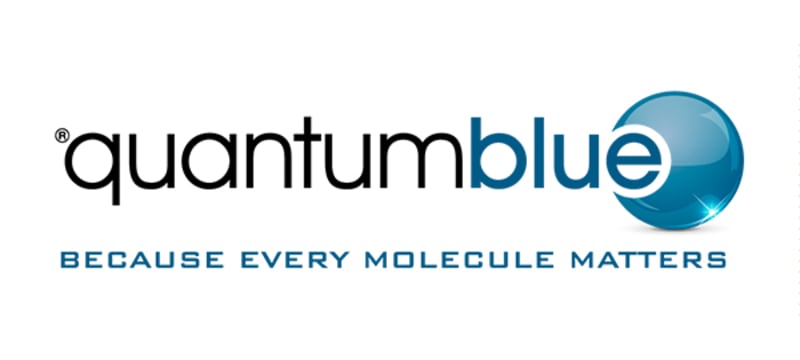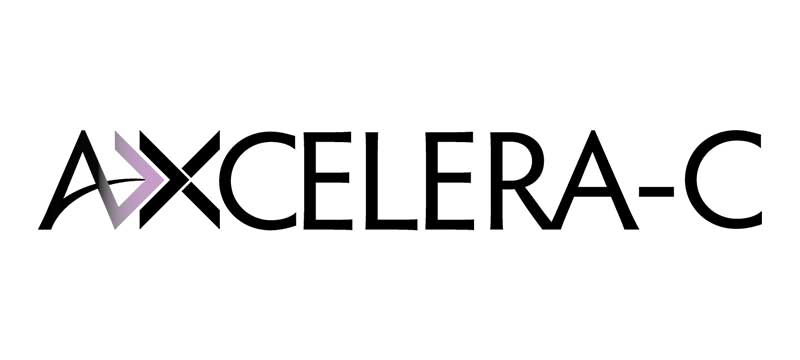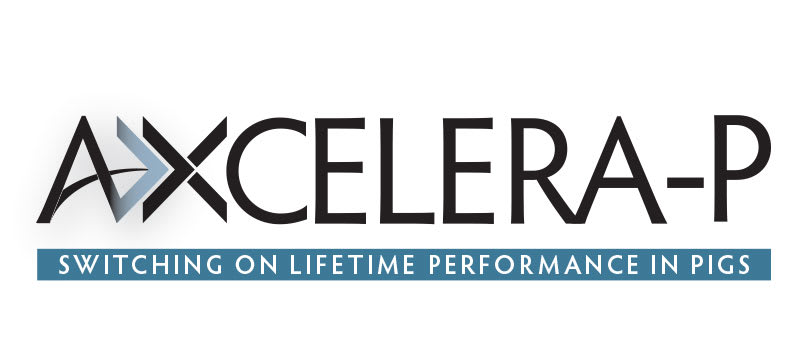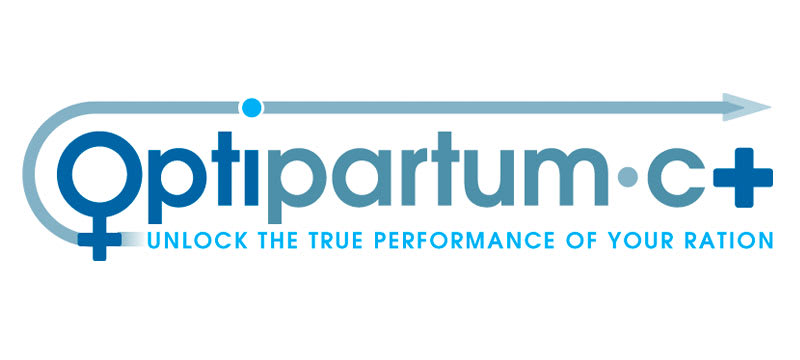Overcome the new crop challenge with a hard-working xylanase
Published Wednesday, 19th July 2017
AB Vista technical manager Gustavo Cordero explains how xylanases can help animal nutritionists limit any potential negative impact from new cereal variation.
For many, harvest may well be a time for reaping the rewards of a hard year's work, but for nutritionists and producers the approach of the new crop harvest can pose a real challenge. Incorporating new crops can negatively impact performance, affecting feed conversion and other production indicators. By taking into account nutrient content variation and using a hard-working xylanase, such as Econase XT, to deal with any viscosity issues, producers can ensure that performance and profitability remain on track.
Variation in the viscosity and moisture content of new cereals can cause issues in digestibility, and can negatively impact gain, feed conversion and health, in both swine and poultry – which means this time of year can be difficult for nutritionists and producers across Europe.
Providing confidence
However, it is well established and known in the industry that the use of a xylanase enzyme can give nutritionists confidence that they are avoiding any potential negative impact from new cereal variation.
Nutritionists are advised to employ a hard-working xylanase to break down NSPs, thereby reducing anti-nutritive effects, lowering digesta viscosity and positively impacting gut health.
By selecting a xylanase, you can target the breakdown of arabinoxylans – the main component of NSPS – into xylo-oligomers, which can have a prebiotic effect in the lower gastrointestinal tract.
AB Vista technical manager, Dr Gustavo Cordero, says if possible, nutritionists should start using the newly harvested cereal by dosing it together with old cereal from the previous harvest in a 50:50 ratio, although often the market conditions don’t allow this to happen. In some countries it is normal to use new crop cereals straight after harvest together with NSP enzymes.
Reducing viscosity
In Europe, the harvest period has already started or is about to start in most countries. Typically barley is the first cereal to be harvested, quickly followed by wheat, whilst maize harvest is much later. Depending on market conditions it may be advantageous to maximise the use of new crop cereals as soon as possible after harvest. Use of a NSP enzyme that effectively reduces viscosity enables the use of viscous cereals like wheat and barley. Econase XT has been shown to reduce viscosity in broilers both in wheat based and in mixed wheat/barley diets, making it an ideal product to be used whilst the main cereals used can vary depending on the market.
“Before using wheat from the new harvest, nutritionists can check its nutritional values, usually using near infrared spectroscopy (NIR), and make any necessary changes in formulation based on protein, starch, fibre and moisture levels.
It is also important that the selected xylanase is thermostable enough as a liquid or powder, because pelleting conditions and feed conditioning vary widely, even within the same feed mill, Dr Gustavo Cordero says.
“Finally, when using xylanase, it’s important to choose one that can be easily measured and detected in feed, using a suitable assay, to ensure that the enzyme is present in sufficient quantity in the final feed and performance and profitability remain on track.”
Latest news
Stay ahead with the latest news, ideas and events.
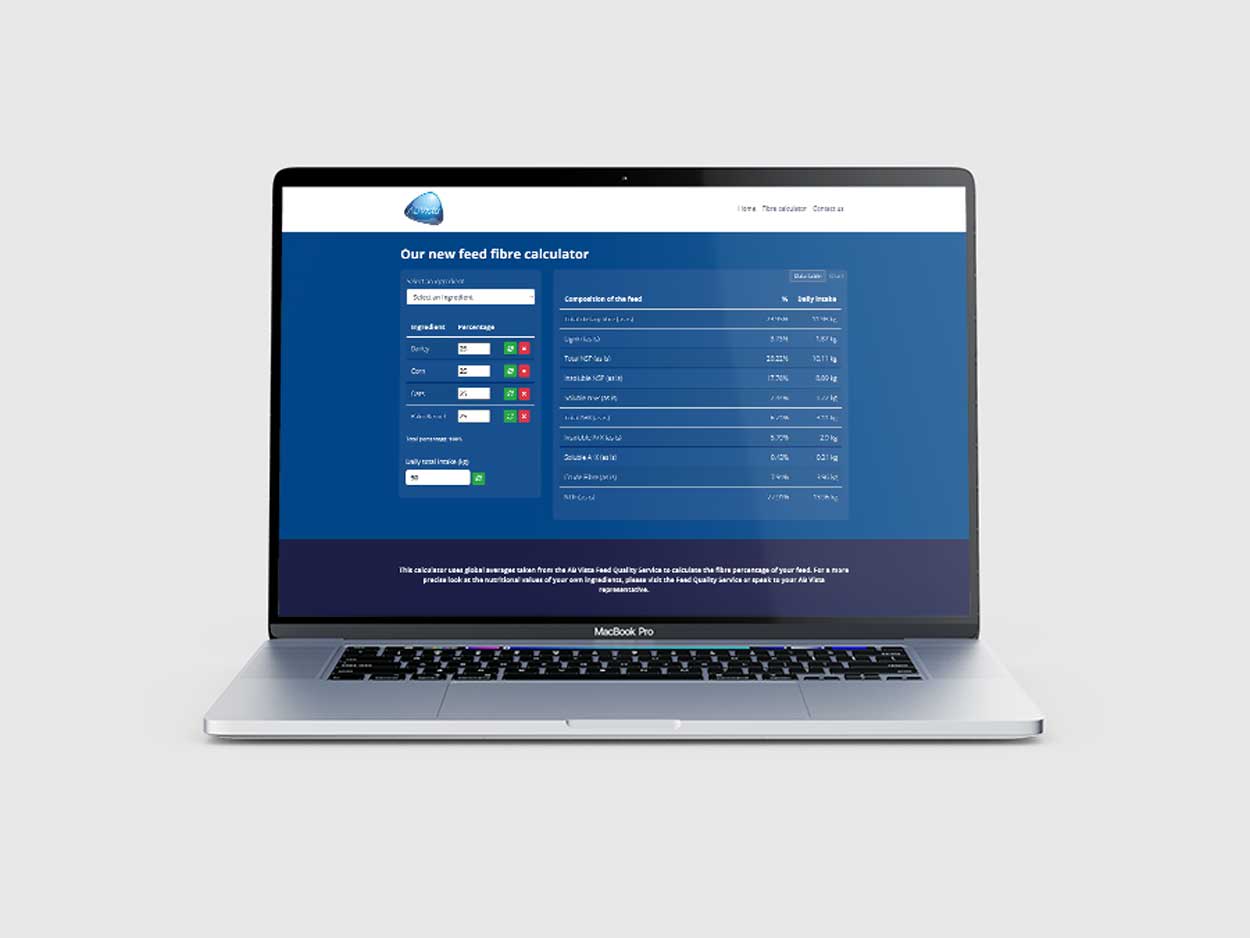
Online Feed Fibre Calculator
Calculate the percentage of dietary fibre in your feed
Our calculator is designed for nutritionists and uses averages of global raw materials to calculate the dietary fibre content (plus other more in-depth fibre parameters) of finished animal feed. These parameters are available within AB Vista’s Dietary Fibre analysis service (part of our NIR service).
Sign up for AB Vista news
A regular summary of our key stories sent straight to your inbox.
SUBSCRIBE© AB Vista. All rights reserved 2023
Website T&Cs Privacy & Cookie Policy Terms & Conditions of Sale IDC Policy








